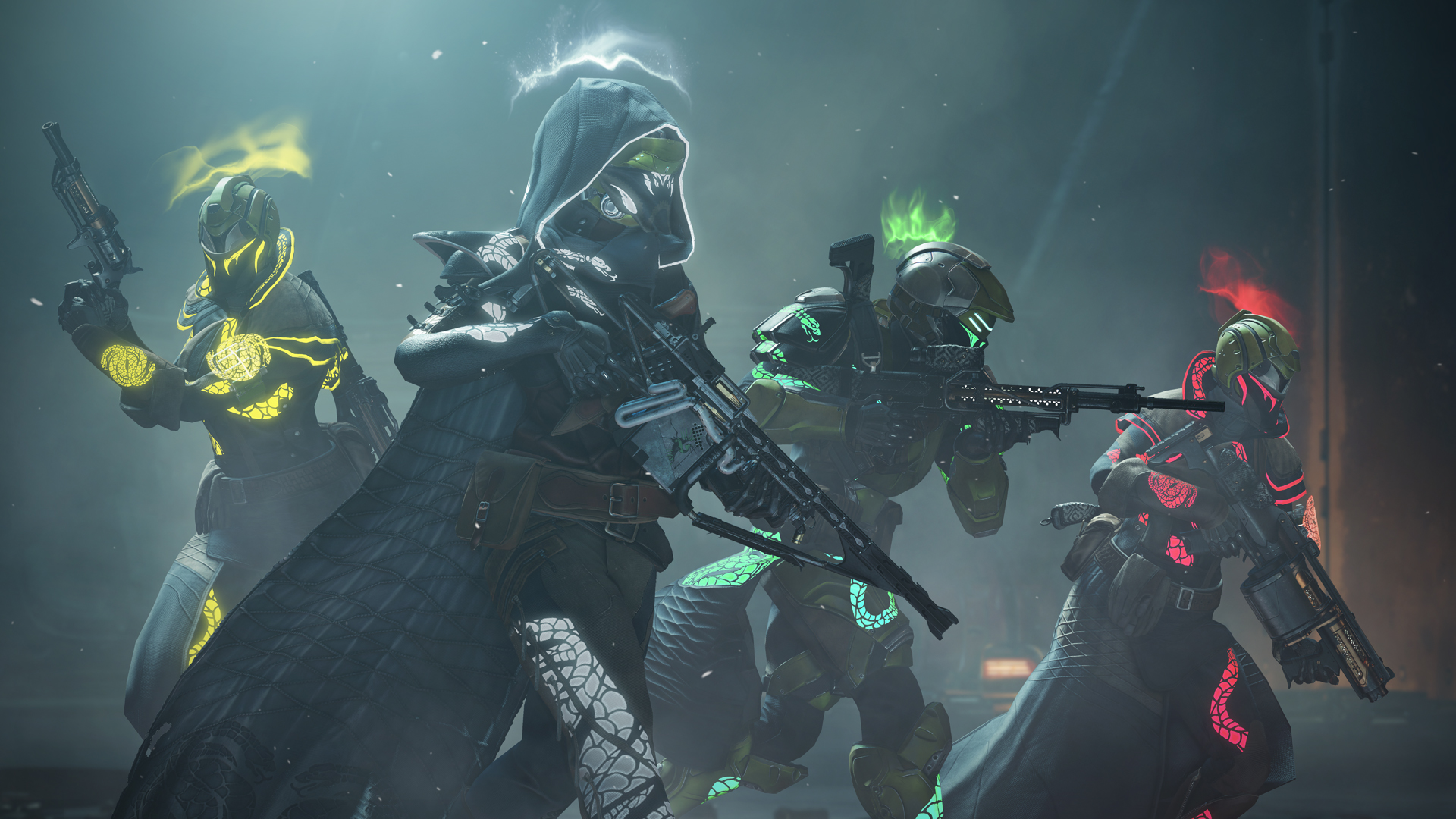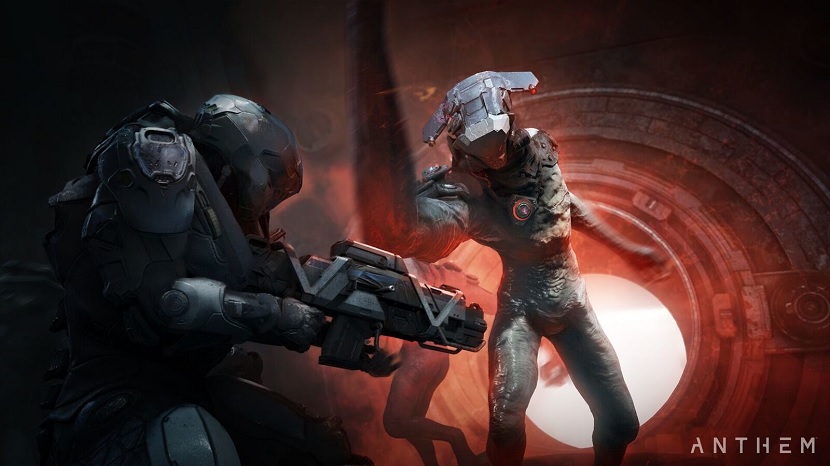We live in a world where developers can instantly connect with players, and it’s easier than ever to be a part of community groups for various games. Twitter, Reddit, hell, even the comments sections of various websites, can be outlets for players to talk about what they love and—sadly—more often what they dislike about a game. As a frequent visitor to the Destiny subreddit, I see salty posts filled with vitriol and a lack of understanding about the intricacies of game development. Demands for things as simple as cosmetic changes to grand additions like “just porting over all the Destiny 1 content” appear almost daily without a shred of irony.
Recently BioWare’s Community Manager, Jesse Anderson, took to the Anthem subreddit to address some complaints about the game, and while doing so, also addressed how developers had stopped frequenting the subreddit and interacting with the community there. His reasoning was that devs who would respond there would often be met with hostile replies. “Things used to be a lot friendlier here for dev team members who normally don’t talk on social channels or forums. They could answer questions, give information and know that they aren’t going to have people getting upset at them.”
Instead of allowing a conversation to happen between the devs and the communities, hostile players are driving away that voice, which then leaves it entirely on community managers to communicate with players.When that communication with them is doing a lot of damage control with overly angry people, there’s not much of a real conversation that can happen. It becomes an echo chamber of negativity, with players becoming sudden armchair developers and thinking they know everything about how to fix and update a game.
Disparity Between Desires and What’s Possible
Here’s the thing: Something that may seem simple to you, the user, may not be so simple from a development standpoint. Often times players are so laser focused on the problem that they don’t see how many additional problems their proposed “solution” creates. There’s this really bizarre narrative line I keep hearing about developers being money hungry and purposefully screwing over their players, but that just doesn’t check out with me. If they were money hungry, wouldn’t they want to be doing everything they could to keep their players happy and to attract more players? Every developer is a business, so at the end of the day, a lot of decisions do come back to money, but there’s a far, far deeper conversation to be had than just “they are doing this to screw over players.”
In my time with Destiny, I’ve seen this very thing crop up numerous times. Something that seems like a small and tiny fix or change is revealed to have far more massive implications. One of the earliest examples was a bug with heavy ammo that was tied in so closely with the spawn in system that it required months of work and extensive playtesting to make sure the fixes didn’t just create problems elsewhere.
Economy changes are another thing. While it’s easy for players to say “make this resource or this loot drop more frequently,” there are often side effects that they simply aren’t considering. Unfortunately the often hostile nature of their requests means that devs don’t want to come in and comment on what those side effects might be, so players are left feeling like they aren’t listened to. In actuality, I can guarantee you that developers are monitoring the discussion surrounding their game very closely, and working hard to figure out how to solve it in a way that breaks as little as as possible.
Feedback, Not Vitriol in Video Game Criticism
Ultimately, somebody who is taking the time to write a post about the problems they have with a game is probably passionate about that game. Most of the people commenting in the Destiny subreddit are longtime players. Those critiquing Anthem are people who see the potential that the game has, and want it to be good. The devs know that work needs to be done in some areas. BioWare’s Jesse Anderson went on to say in his post “Do we have a lot of work to do to fix parts of the game? Yes, and the team is committed to making improvements and releasing new content.” He effectively admitted that the game isn’t perfect, and they want to make a game the players can love.
It’s about simple understanding. If i’m upset at something, I can deliver that feedback, but I need to do so in such a way that keeps a broader perspective than my own anger. Players are often so quick to accuse the developer of things that they fail to see every facet of the situation. Just because you’re looking at every angle doesn’t mean it’s not still a problem, it just gives you a better understanding of why a decision might have been made and why that particular thing may be more difficult to fix than initially anticipated.
Developers are a finite resource, and they have to prioritize their time, not only with what they work on fixing in game, but with how they are using their time to respond and interact with the community outside of the game. If they feel that most of their interactions will be hostile attacks with a lack of understanding, they will simply stop responding and close that door of communication. It doesn’t mean that they aren’t working on improvements, but it does mean that the dialog with the players is extremely limited and usually funneled through community managers (who then have to shoulder that hostility instead).
One of the most fascinating parts about my job is the ability to talk to developers, creators, and the people who make games. I get to see what an insanely complex and complicated process the whole thing is. I get to see what an absolute miracle it is that games even work at all. I get to experience the passion and the love that these people have for the thing that they’ve created. With the internet, that connection is closer than ever for players who want to experience the same thing, but we’re driving away that open dialog by not being willing to actually have a dialog.
Feedback is important. Developers aren’t perfect. Game development isn’t perfect. But players aren’t perfect either, and everyone wants something a little bit different. If we can bring that whole conversation together with valuable feedback about what we want, developers can better prioritize their time and energy into the things that will make their games the best experiences for the most players. It’s going to be impossible to make everyone entirely happy, but we have to remember that we criticize because we love these games and we want them to do well.
It’s not about a battle between developers and players. We’re on the same team. You want to play the game they make. They want to make a game you’ll love. If we focus on making our feedback a little more of an understanding dialog, we can ensure that we’ll keep playing the games we love for years to come. And worst case? There are plenty of games out there, you can always just go play something else.
Daily Reaction reacts daily to news from the video game industry. Have suggestions for the column or subjects you’d like us to react to? Let me know in the comments below and be sure to check out previous Daily Reactions for more dives beyond the headlines.










